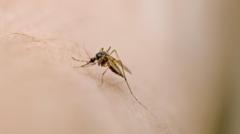A recent study indicates that antibiotic resistance has contributed to the deaths of three million children globally in 2022, with a significant increase in infections observed, particularly in vulnerable regions. Experts emphasize the urgent need for action to combat antimicrobial resistance (AMR) and its profound effects on child health.
Alarming Rise in Child Deaths Linked to Antibiotic Resistance

Alarming Rise in Child Deaths Linked to Antibiotic Resistance
Study reveals over three million child deaths in 2022 tied to drug-resistant infections, primarily in Africa and South East Asia.
More than three million children reportedly lost their lives in 2022 due to infections resistant to antibiotics, as highlighted in a recent study by renowned child health experts. The findings, which stem from an analysis of data from the World Health Organization (WHO) and the World Bank, indicate that children in Africa and South East Asia are most affected by this rising health crisis.
The phenomenon known as Antimicrobial Resistance (AMR) emerges when bacteria evolve and outsmart antibiotic treatments, posing a significant challenge to global health. This study underscores the devastating impact of AMR on young lives and illustrates that AMR-related child infections surged more than tenfold in just three years, a situation worsened by the COVID-19 pandemic's strain on healthcare systems.
Antibiotics, which are crucial in treating various bacterial infections, are facing growing resistance due to their over-prescription and misuse. The report's authors, Doctor Yanhong Jessika Hu and Professor Herb Harwell, found alarming increases in the use of critical antibiotic classes, such as "watch antibiotics" and "reserve antibiotics," particularly in the previous few years.
The implications of escalating antibiotic resistance are dire, as bacteria grant themselves immunity to these once-potent drugs. Harwell will address these findings at an upcoming health conference in Vienna, expressing concern over AMR’s disproportionate impact on children around the globe.
Despite WHO designating AMR as a significant health threat, addressing it is complex due to its comprehension across various societal dimensions, including medicine, food, and environmental exposure. Experts emphasize the critical need for enhanced immunization, improved sanitation, and caution in antibiotic usage to prevent further infections.
Dr. Lindsey Edwards from King's College London echoed the urgency of the study's findings, calling for strategic measures from global health leaders to avert a potential regression in child health advancements, particularly in regions already grappling with vulnerability. The long-term solution to AMR remains challenging, yet immediate action is essential to safeguard future generations.






















